In the highlands of Guatemala, Marcos tends his avocado farm, the sun casting long shadows across the rugged terrain. His journey to this peaceful setting has been anything but peaceful. “I had to go back to my country because I had nowhere else to go,” he recalls. It was similar to what happened when he left: “I didn’t have any way to make an income here,” he reflects on his decision to leave Guatemala in 1999 for the United States, driven by the need for long-term employment.
The journey was fraught with danger. “The coyotes only wanted money. People who couldn’t keep up were left stranded in the desert. I kept asking myself: ‘Will I make it this time or not? ’” He did, but the dangerous journey was only the beginning of his misfortunes. In the United States, Marcos found work on a chicken farm. “It was an extremely hot place,” he recalls. The harsh working conditions led to serious health problems. “I damaged my lungs, fell ill and had to go back.”
Back in Guatemala, Marcos returned to growing avocados, seeking a sustainable future for his family. He speaks of his new life with a sense of fulfillment that he did not experience when he lived abroad. “Here, if I want to work for three hours and rest, no one is chasing me, hurrying me. Over there, on the other hand, it is as if we are never allowed to stop.”
Remittances
At the beginning of this year, the International Organization for Migration (IOM) recorded more than 23,000 movements across the country, which have been steadily increasing since 2022. For decades, money sent home from abroad has not only served as a lifeline for families, but has also been vital to the Guatemalan economy. Since 2002, remittances have grown from 5% of GDP to 19% in 2023.
Across the country there are several large, well-built homes that stand out in the neighborhood. They are known locally as “remittance houses” and are largely financed by contributions from relatives who have traveled irregularly north to work.
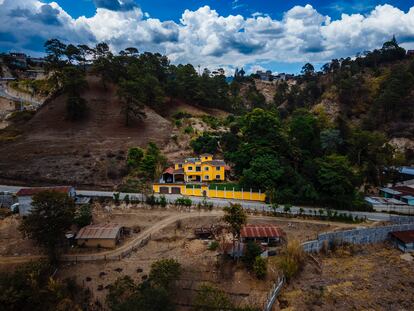
On the one hand, these luxurious buildings serve as a symbol of higher status compared to other houses in the neighborhood that are much more modest. On the other hand, they also reinforce the belief of many rural Guatemalans that traveling to the United States is the only viable means of generating lasting generational wealth.
The border
In the border town of Tecun Uman, migrants can be seen crossing at all times. Along the Suchiate River, there are crossings back and forth, both official and unofficial, by migrants who pay 10 quetzales ($1.28) for a one-way trip on an inflatable boat. On the Mexican side, there is a temporary camp with dozens of tents that house migrants like Grisel.
She embarked on a journey from Venezuela with her 13-year-old daughter, in search of a better future in the north. “The situation in Venezuela is critical,” she explains. “Health, education and food supplies are in total crisis.” Her son had already managed to reach the United States a year ago, and now she wanted to do the same with her daughter.
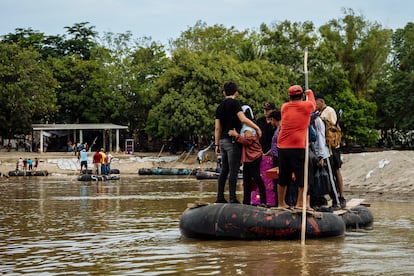
Grisel and her daughter have been traveling for a month. Their journey through the Darien has been arduous, but they have been lucky. “We didn’t experience the worst, but we heard many testimonies from other people who were robbed or assaulted,” she says. However, her concerns were heightened when they reached the border with Mexico. “The police searched us to see if we had money. I had given it to my daughter. When they searched me, they said that if they found money they would take it and deport us to Venezuela.”
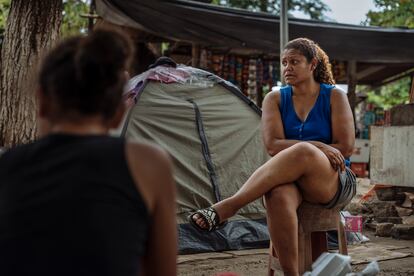
The return home
An increasing number of Guatemalans are looking for ways to stay home. In rural areas like Huehuetenango, opportunities are few, but there are some hidden ones growing on the mountainsides. Off the main roads are avocado plantations run by farmers, many of whom once traveled to the United States to work but have now returned after years of almost constant work. “What I remember from that trip is everything you have to endure: hunger, thirst, walking so much until your feet hurt. You manage to get to the United States, but almost dead,” Isaías recalls.
When Isaías left for the United States in 2015, his son was only eight months old. “Leaving your family is not easy. Leaving your wife, your parents, is very complicated. It is not easy, at all,” he recalls. For many migrant workers like Isaías, settling in another country without legal status means being effectively trapped in that country until one decides to leave or is deported.
In Isaiah’s case, he managed to work for six years before making the decision to return and join his family. “I felt enormous joy when I saw my son again, when I was finally at his side.” The only problem was that he was already seven years old and had grown up without him. “At first he rejected me. Because I was a stranger to him. For a long time I had simply been the man he saw on the phone.” Several years passed before his son saw in him a father figure again.
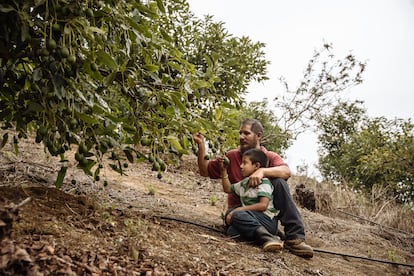
Many of those who have chosen to travel to the United States focus on the money they might earn instead of the moments they will miss back home. But at home, their absence is hard to fill. “It is common to see families separated, with parents and siblings who miss birthdays and special moments because they are working abroad,” says Yojana, a 24-year-old meat vendor who has a stand at the local market in Quiche.
She is actively involved in her community, organizing local markets every weekend that attract about 400 people, including visitors from neighboring towns. Yojana also tries to raise awareness about the struggles and aspirations of her community, including the emotional impact of family members migrating to the United States in search of better job prospects. When her father returned after working there for six years, their family bond had changed. “We lost a part of our relationship,” she explains.
Not all Guatemalans see migration as the only option to achieve a certain level of prosperity. Adriana, a young coffee farmer in San Juan La Laguna, is committed to making her coffee business prosper by leveraging local resources and opportunities for sustainable livelihoods. “Our goal is to create small businesses that offer better economic opportunities,” Adriana explains.
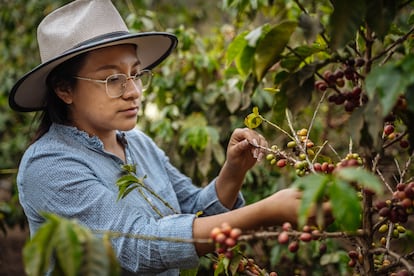
“We have had neighbours who suddenly disappeared in search of a better life abroad,” she says. “But I don’t want to risk my life and abandon my family and friends; we want to avoid the risks of migrating by seeking opportunities in our own community.”
The journey to the United States through irregular means is not only dangerous, it can involve years of work without any possibility of seeing loved ones left behind. For people like Isaías who have returned, their new dream is to live and progress in the place where their families are. “My new dream is to work here so that my son can grow up in his own country, knowing that we can have a good life without having to go abroad. It makes me very proud to say that we can build a future here, producing what we need without having to emigrate.”
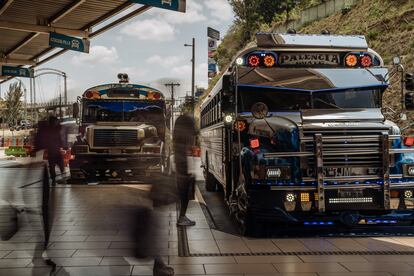
#hidden #costs #remittances #Guatemala
